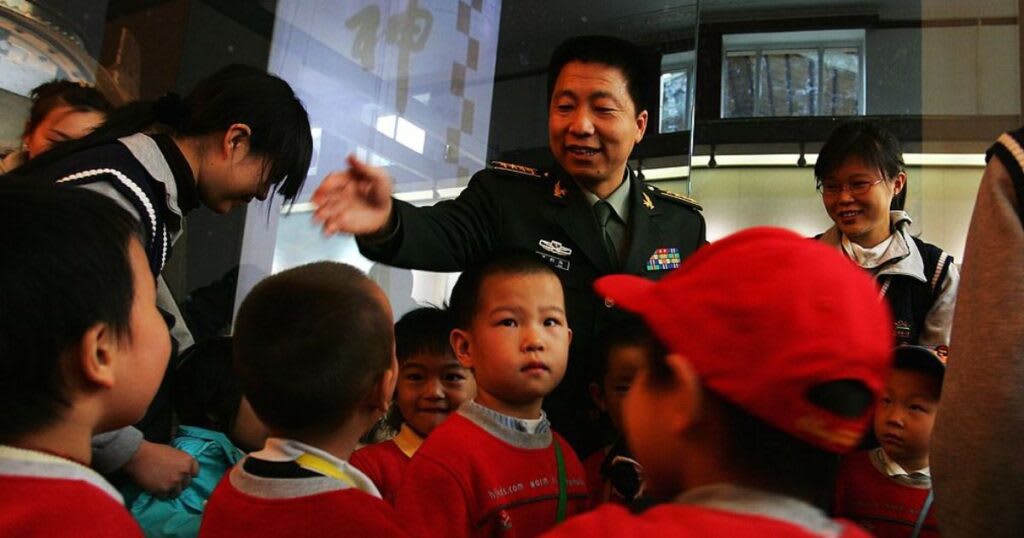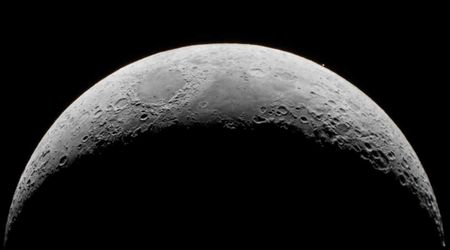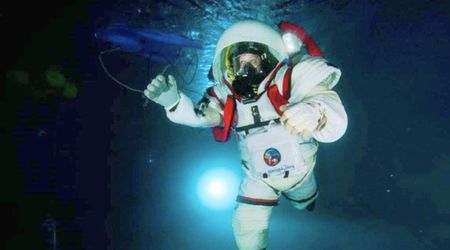Astronaut was baffled when he suddenly heard 'someone knocking' eerily on his spacecraft — he was alone

The cosmos’ striking beauty is amplified with the mystical presence of radiant celestial objects. Yet there are many unexplained phenomena surrounding its vastness, such as the enduring question: Are we alone in this universe? Despite billions of luminous galaxies and countless uncharted planets, scientists are still stuck in the Fermi Paradox when it comes to extraterrestrial life. But one astronaut's bizarre experience in space made him think for a few moments, 'Who's out there?'

When China’s first man in space, taikonaut Yang Liwei, heard a strange noise, he was left confused and thought there was “someone knocking” eerily on his spacecraft. The incident occurred during his 21-hour solo stay in orbit. The mysterious 'knocking' initially caused him to panic as he was trying to figure out the sound's source in space, as per BBC. Since it was his maiden flight in 2003, the astronaut quickly took a look out of the porthole to calm his nerves. But all he could see was the cosmic abyss, and there weren’t any signs of unusual activity — certainly no aliens.

Not unlike a scene from a sci-fi movie, Liwei made the fascinating anecdote from his life public years later during a 2016 interview, as per the publication. As the first Chinese astronaut in outer space, he was focused on his mission, and this was indeed a major distraction. While describing the nature of the sound, Liwei recalled it was like “someone knocking the body of the spaceship just as knocking an iron bucket with a wooden hammer.” He went on to claim that the sound neither came from outside nor was it inside the capsule at the time.

Moreover, the astronaut had no explanation for the eerie knock — could it have been a celestial object striking the small space vehicle, or was it something else entirely? He simply had no answers. After safely returning to Earth, the astronaut reportedly couldn’t recreate the mysterious sound to help experts identify it. Once he went public with his story, the Chinese media and citizenry were overwhelmed, and with that, space enthusiasts jumped in to explain the phenomenon. Many found it surprising that Liwei heard the 'knocking' in space, as sound cannot travel through a perfect vacuum.

“The traveling of sound requires a medium—be it air particles, water molecules, or metal solid atoms,” Professor Goh Cher Hiang, an expert in space engineering at the National University of Singapore, told BBC. “If it is knocking, there could be something physical ‘hitting’ the spacecraft carrying the astronaut," the outlet quoted Professor Hiang, adding that such a suggestion was purely speculative. As curiosity around the story kept growing, his colleague, Wee-Seng Soh, disagreed and suggested that the sound could’ve occurred due to thermal expansion "as a result of expansion or contraction of the spaceship, especially since the temperature of the spaceship's exterior could change considerably within the orbit."

This was not the last time that Chinese astronauts heard weird sounds during space missions, according to the local press. After the completion of the historic Shenzhou V mission, other Chinese astronauts reported experiencing similar unexplained sounds during their space voyages in 2005 and 2008, respectively. To put the rumors to rest, ultimately, Liwei had to step in and call it a “normal phenomenon.”

During an event at a school in the eastern city of Ningbo, Zhejiang province, the veteran astronaut said that he finally understood that the knocking sound was a result of decreasing air pressure. “I think it is normal. It is necessary to carefully identify the cause,” China Daily quoted him as sharing with students. Notably, the changing air pressure on space vehicles from the outside as they pierce through Earth's turbulent atmosphere can cause their parts to expand, contract, or shift slightly.
























